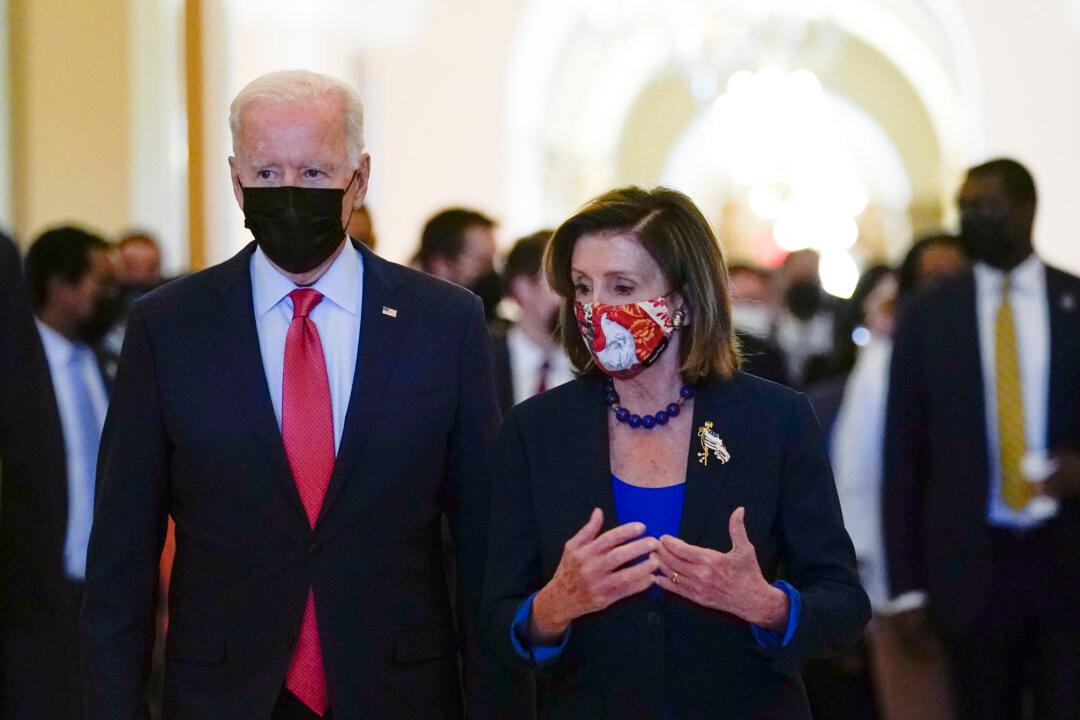Speaker of the House Nancy Pelosi (D-Calif.) said in a publicly-released letter that most House progressives support passage of the $1.2 trillion Senate-passed infrastructure bill, despite continued divisions forcing her to push off a Thursday vote on the bill.
While progressives are generally supportive of the smaller infrastructure-focused bill, they see the more expansive Build Back Better reconciliation bill as a far more important package. To this end, the caucus of House progressives has held up passage of the infrastructure bill for months, holding the moderate-preferred bill hostage in a bid to force moderates to support the Build Back Better Act.





